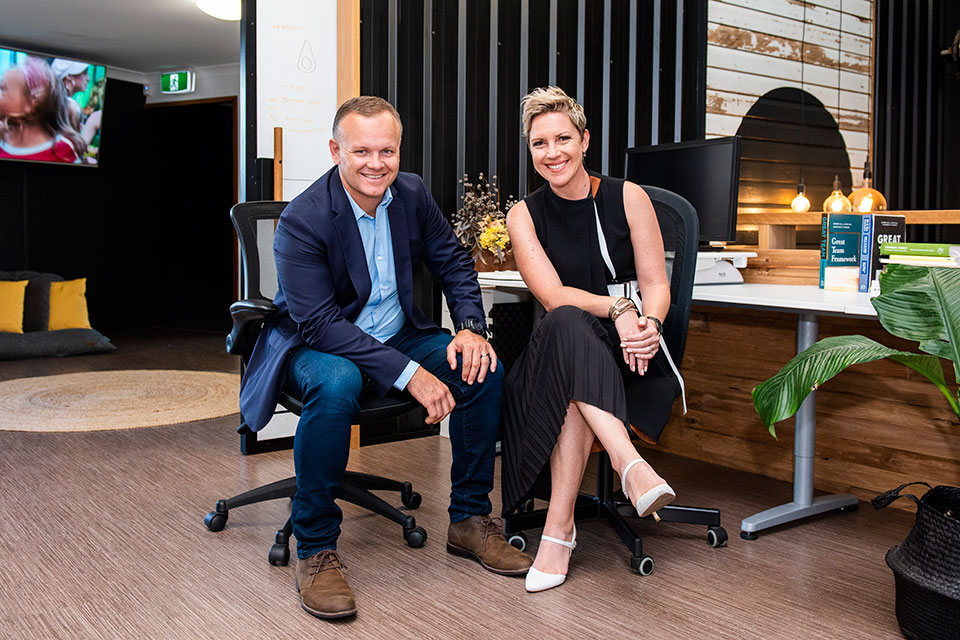Why the war for talent is demanding more flexibility

The push for organisations to provide more flexibility in work practices has been a couple of decades in the making. The macro-generational shifts of two full-time working parents, and gen Y and millennial–led work teams have continued to shift the focus of teams to being more adaptable and flexible. However, the rapid global movement towards working remotely brought on by COVID-19 quickly made clear how underprepared and outdated flexible working policies had become.
Gaining a competitive advantage to attract the best talent
Recent research suggests that, to be competitive in the talent marketplace, you need to have options available beyond the co-located team. A 2017 study from ManpowerGroup Solutions, for example, revealed that nearly 40 per cent of job candidates worldwide said flexibility was one of their top three factors in career decisions.
This pressure has only increased after the changes forced on all companies by the pandemic. More Australians want to work from home an average of two days per week after COVID-19, according to a survey by the University of Sydney Business School. Research commissioned by software giant Atlassian in early 2021 shows that globally 46 per cent of workers want to have a mix of working from the office and working from home. And another study from Atlassian in 2020 revealed that nearly seven in 10 Australian workers say their job satisfaction and work–life balance has improved since the shift to remote work.
This increased satisfaction means employees are even willing to take a pay cut in exchange for the greater flexibility. According to tech company Citrix, 56 per cent of white collar employees in Australia say they would swap some salary for a more flexible working arrangement. And results from global recruitment firm Robert Walters’ 2020 salary survey also show that salaries have dropped down the priority list as employees chase greater flexibility in the shift to remote work.
Progressive organisations have embraced a more radical flexibility, giving employees control over where, when, and how much they work. In April 2020, Gartner surveyed 317 CFOs and found 74 per cent intended to shift some employees to remote work permanently even after the restrictions created by COVID-19 had passed. Here at Pragmatic Thinking, we conducted a State of Remote Work report in September 2020 and found that 61 per cent of organisations will have staff continue to work from anywhere for the foreseeable future.
All this creates a greater imperative for organisations to offer more flexible, non-financial, options to continue to attract and retain top talent.
Doing the work to offer true flexibility
Offering true flexibility to employees means moving beyond token efforts, and no longer basing options on old ideas that staff need to be monitored and the office is where ‘real’ work happens. Even if in theory you agree with this, we are seeing large waves of Executive groups essentially insist talent return to the office. This reaction will come at the detriment of key talent.
Offering greater flexibility can’t just be a soft policy we wheel out occasionally, organisations who will start to win the war on talent are investing heavily in changing the way work is done. The concept of what work is and when work starts has shifted. This means top employees are expecting more flexibility on when their work day starts and finishes, where they complete work, and when they can schedule time away from work for caregiving or even extended time off. They’re also expecting more creative options for part-time work, including job sharing and considered splitting of responsibilities.
In order to create this opportunity leaders require new skills of leadership, skills to provide clarity and feedback amongst a hybrid team. What we used to do, doesn’t automatically translate to this new environment.
Focusing on culture
Shifting your team to working from anywhere requires a different conversation about culture. It’s a conversation about what you and your team value, and why you value it. What do you care about, and how can you care about that same thing in a different way? What’s needed is an adaptation of how your employees connect and express these things when not all in the same location.
With clarity around performance, and a drive towards a dynamic and evolving culture, successful organisations are those that believe work can be an extraordinary experience for the individual.
Avoiding the investment into a hybrid model of working, hoping that we’ll figure it out along the way, is a recipe for loss within your organisation. Talent are seeking a mature, structured approach to flexibility and will ultimately vote with their job choices. Your organisation can truly become an employer of choice when the groundwork of structure, hybrid leadership skills, and a mindset that performance, culture and autonomy can co-exist is present. It’ll be worth the investment.
Written by Alison Hill and Darren Hill.
Bring the best of the CEOWORLD magazine's global journalism to audiences in the United States and around the world. - Add CEOWORLD magazine to your Google News feed.
Follow CEOWORLD magazine headlines on: Google News, LinkedIn, Twitter, and Facebook.
Copyright 2025 The CEOWORLD magazine. All rights reserved. This material (and any extract from it) must not be copied, redistributed or placed on any website, without CEOWORLD magazine' prior written consent. For media queries, please contact: info@ceoworld.biz








